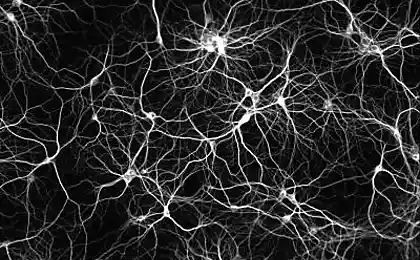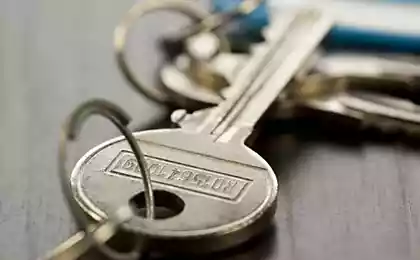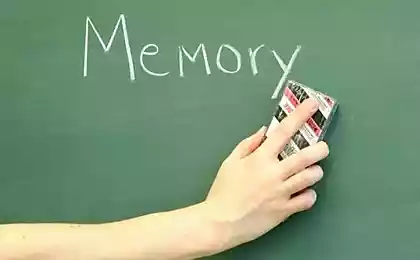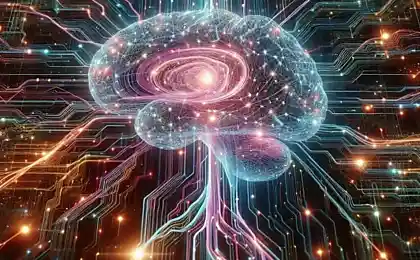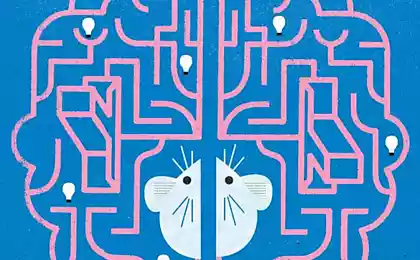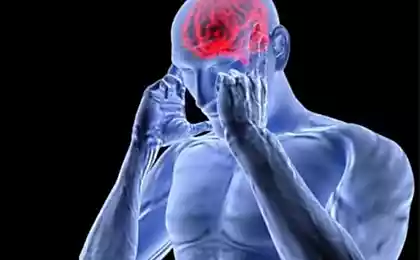186
5 strange facts about the properties of memory or where my keys
Memory is a very unusual thing. It accumulates minute details from childhood events, but it can easily fail at the moment when you need to remember where the keys are left.
There are several types of memory, and the brain is uniquely able to forget each of them. Psychologists have categorized different ways that allow us to forget events, and biologists have studied the corresponding mechanism at the cellular level.
It turned out that forgetting is a normal process, and it is even vital for the functioning of the brain. Here are five of the strangest ways people can forget.
377165
How a doorway destroys memory As a result of one of the most common but mysterious cases of short-term memory failure, a person finds that when he enters a room, he absolutely does not remember why he came here. The researchers argue that in this case the doorway is to blame.
The very moment of passing through it makes it clear to the brain that a new situation has begun, and previous memories can be deleted, which causes such memory lapses.
“Passing through a doorway serves as a memory boundary for the brain, separating episodes of activity and sending them to the archive,” says Gabriel Radwanski, a psychologist at the University of Notre Dame. It’s hard to remember a decision or action made in another room because it was placed in a separate memory section.
But these mental boundaries are useful because they help us organize the chronology of events in our minds and remember where and when a particular event occurred.
Memory erasing activities A small number of certain actions can lead to temporary memory loss and blurred consciousness, a phenomenon called transient global amnesia.
For example, scientists say that such a memory problem can cause sex, after which patients forget the past day or have difficulty forming a new memory.
People with transient global amnesia suffer minor side effects, and the memory problem actually goes away after a few hours. But it is unclear how this happens, and brain scans of patients with this type of amnesia show no signs of brain damage or apoplexy.
Memory can be stored even if it is not accessible.
Could a forgotten song live on in our memory without us even knowing it?
Recently, a journal devoted to neuroscience published an article about a strange case. The researchers described a woman who had been haunted by musical hallucinations – hearing a song she didn’t recognize.
“To our knowledge, this is the first case of musical hallucinations associated with an unknown patient song, while other people in her environment are well aware of this composition,” the researchers wrote.
Apparently, the woman at some point in her life knew this song, but forgot it. It makes you wonder what happens to forgotten things. It is assumed that such memories in some form can be stored in the brain, and they remain accessible, but unrecognizable.
It is possible that this woman has fragmentary memories of the song, but most of them were lost. As a result, she was unable to recognize them, scientists say.
The brain is programmed to forget childhood Our memories of early life fade over time, and there’s obviously a reason for that. Most often, people cannot remember childhood events, usually until the age of 3-4. This phenomenon is called infantile amnesia.
Scientists used to think that early memory existed, but children simply don’t have the language skills to verbalize it. However, a recent study showed that children still remember the events of the first years of life, but over time forget them with the help of special mechanisms. A possible explanation for this is the natural development of the brain, which in the process of growing and creating cells erases stored memory.

Brain damage can cause forgetting Memories can be lost before they can be saved. This is due to damage to brain structures that are engaged in the formation, preservation and restoration of memory. Damage to such areas leads to the most unusual forms of amnesia.
In one of the most popular cases, a patient lost the ability to form a new memory after a part of his brain called the hippocampus was surgically removed to treat epilepsy. A similar fate overtook another patient, but in this case the cause of the deviation was inflammation of the brain caused by a virus.
Source: facepla.net


